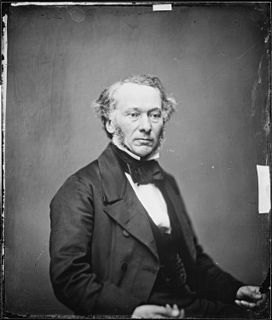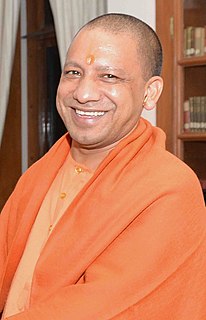A Quote by Sonam Wangchuk
In the past 30 years, I have been trying to make education more relevant as our old education system valorises production and consumption.
Quote Topics
Related Quotes
Twenty per cent of American children grow up in poverty, and that means they get inadequate nutrition, inadequate health care, and because we have a very local education system, they get inadequate access to education. With those as a starting base, you perpetuate inequality. That's why, here in New York, Mayor de Blasio has made a big deal of trying to focus on preschool education, because by five years old, there are already huge differences. We've finally begun to recognize it.
Education is 'the guardian genius of our democracy.' Nothing really means more to our future, not our military defenses, not our missiles or our bombers, not our production economy, not even our democratic system of government. For all of these are worthless if we lack the brain power to support and sustain them.
In Burma, we need to improve education in the country - not only primary education, but secondary and tertiary education. Our education system is very very bad. But, of course, if you look at primary education, we have to think in terms of early childhood development that's going back to before the child is born - making sure the mother is well nourished and the child is properly nurtured.
I strongly believe in the apprenticeship model because we see in a lot of countries the local education system is not providing talent that businesses need. So it is important that there is an alignment between what the companies need and the education system, so the education system can build the right programmes.
First, this law - the National Defense Education Act - ended years and years of debate about one controversial question: 'Shall the Federal Government, with all its massive resources, get directly involved in aiding American education?' The answer this law gave was a loud 'Yes!' - and thus we paved the way for a new era of support for education in America. This law, in fact, helped make possible more than 50 new education laws passed in my administration.
I shall argue that it is the capital stock from which we derive satisfaction, not from the additions to it (production) or the subtractions from it (consumption): that consumption, far from being a desideratum, is a deplorable property of the capital stock which necessitates the equally deplorable activity of production: and that the objective of economic policy should not be to maximize consumption or production, but rather to minimize it, i.e. to enable us to maintain our capital stock with as little consumption or production as possible.
Most of our competitor nations around the world have a national education system and America is the only major nation in the world that operates off of local school boards. They receive very little direction from state boards of education or from the nation. So local school boards direct basically what happens and too often they're not willing to track or to do the supervision of the education system that will make it world competitive.
Sending our kids in my family to private school was a big, big, big deal. And it was a giant family discussion. But it was a circular conversation, really, because ultimately we don't have a choice. I mean, I pay for a private education and I'm trying to get the one that most matches the public education that I had, but that kind of progressive education no longer exists in the public system. It's unfair.




































